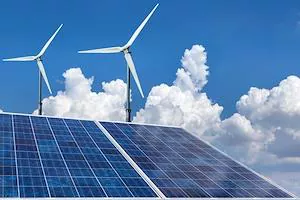New Renewable Energy Promotion Law
A new law introduced amendments to the Federal Promotional Scheme of Power Generation with Renewable Energy Sources.

On October 21, 2015, Law No. 27,191 (the “New Promotional Scheme”) was published in the Official Gazette. The law introduced substantial amendments to the Federal Promotional Scheme for the Use of Renewable Energy for Power Generation, approved by Law No. 26,190.
The short and long term objectives of the New Promotional Scheme are for renewable energy sources to become 8% of the total power consumption in Argentina by December 31, 2017 and 20% by December 31, 2025, respectively.
The renewable energy sources included in the New Promotional Scheme are wind; solar thermal; solar photovoltaic; geothermal; tidal; wave; marine currents; hydro (up to 50 MW installed capacity); biomass; exhaust gases; biogas and biofuels (with the exception of uses thereof established in Law No. 26,093).[i]
The promotional scheme based on Laws No. 26,190 and 25,019 provided for a feed-in tariff with a “premium tariff design” complemented with tax benefits for generation plants employing renewable energy sources, electromechanical assembly, the manufacture or import of components for integration into equipment manufactured locally, and commercial exploitation. In addition, it set a target for renewable energy sources to reach 8% of the total power consumption in Argentina by 2017. However, this target was not binding upon consumers.
As this promotional scheme was deemed insufficient to allow the development of renewable energy projects, since 2009, the Federal Government has promoted the execution of long term PPAs between state-owned companies —acting as off-takers— and private developers —acting as suppliers. These contracts provide higher prices for the electricity supplied and additional benefits for the suppliers.
Notwithstanding these additional benefits, lack of available financing for renewable energy projects in Argentina has contributed to the fact that the current installed generation capacity from renewable sources is lower than 1% of the country’s total capacity.
Highlights of the New Promotional Regime are:
1. Renewable Portfolio Standards
a. Large Consumers
Under the New Promotional Scheme, large consumers (i.e. consumers with a demand equal to or larger than 300 kW) are required to source a minimum level of their electricity consumption from renewable sources, as per the targets and respective dates established above (8% by December 31, 2017 and 20% by December 31, 2025, in a sequential manner). Failure to meet the applicable targets under the Renewable Portfolio Standard shall trigger a fine calculated on the basis of the variable cost of power generated using imported diesel oil.
In order to meet the target under the Renewable Portfolio Standard, large consumers may opt to self-generate or purchase power sourced from renewable energy either directly from generators or from marketers, distributors or CAMMESA.[ii] The New Promotional Scheme sets a USD 113 per MW/h price-cap, applicable only to power purchase agreements (“PPAs”) entered into by large consumers with power generators. The New Promotional Scheme expressly states that any provision currently in force that restricts the execution of PPAs between private parties and power generators are not applicable to large consumers for the purposes established therein and further provides that no further restrictions will be established to the execution of such contracts in the future.
b. Small Consumers
The New Promotional Scheme does not establish a binding obligation for residential and small consumers (i.e. consumers which demand is below 300 kW).
Notwithstanding, it sets forth that the enforcement authority shall instruct CAMMESA to diversify its energy mix in order to meet the targets under the New Promotional Scheme. In this sense, the PPAs entered into by CAMESSA with power generation companies are not subject to the aforementioned price-cap and will allow the pass through to prices of any new or increased tax.
2. Tax Incentives and Exemptions
The New Promotional Scheme builds upon the tax incentives established by Law No. 26,190 including anticipated VAT refunds, accelerated depreciation for income tax purposes, extension to 10 years of the set-off term for tax credits and debits, tax credits and exemption of the minimum presumed income tax and income tax on payments of dividends, among other tax benefits that vary according to different stages of the long and short term objectives.
In addition, power generators employing renewable energy sources will be exempted from import duty payments for capital goods, special equipment or parts necessary for the purposes of their projects until December 31, 2017.
The New Promotional Scheme also provides that the access to and use of renewable energy sources shall not be subject to specific taxes —including royalties— until December 31, 2017.
3. Public Benefit Fund (FODER)
The New Promotional Scheme introduces a federal trust fund (“FODER”, after its Spanish acronym) to act as a public benefit fund for purposes of granting loans, issuing securities, investing in renewable energy companies and providing guarantees to renewable energy producers.
FODER will be funded, among other sources, by the Federal Treasury, with sums equating to no less than 50% of the annual cash savings resulting from a reduction in fossil fuel imports as a consequence of the increase in renewable energy generation, and specific charges to be implemented in the future.
4. Dispatch Rules
Power from intermittent renewable resources will enjoy a dispatch priority similar to the one currently given to run-of-the-river hydropower plants.
In addition, neither renewable energy self-generation plants nor plants that generate energy from renewable sources to be sold under PPAs will be required to have dedicated backup capacity.
[i] Mixing with fossil fuels.
[ii] Cammesa is a state-owned company to which the administration of the wholesale electricity market (WEM) is entrusted. Cammesa is empowered to purchase electricity from renewable sources to supply the WEM.
This insight is a brief comment on legal news in Argentina; it does not purport to be an exhaustive analysis or to provide legal advice.